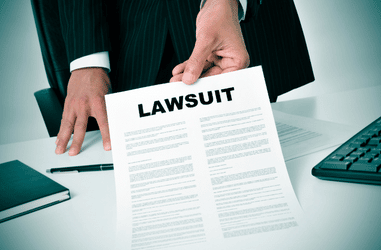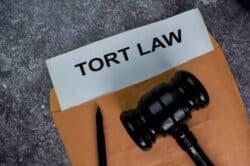What Are Three Types of Damages Awarded in a Mass Tort Case

The three types of damages awarded in mass torts cases are nominal damages, compensatory damages, and punitive damages. While each of these damages is possible in a mass tort case, they are not all awarded in every situation.
The types of damages you receive in a personal injury mass tort case will depend on whether you suffered any physical injuries or had any expenses related to the case. It also depends on whether the at-fault party’s actions were particularly egregious.
What Are Nominal Damages?
Nominal damages are a small sum of money awarded in a personal injury case to acknowledge that the plaintiff’s rights were technically violated by the defendant. When the court awards nominal damages, the plaintiff usually has not suffered any loss or harm. However, it is also possible that while they suffered loss or harm, they could not establish that they were entitled to compensation. For instance, maybe they didn’t have compelling evidence.
Nonetheless, the plaintiff may receive a trivial amount of money to symbolize their vindication in court. Typically, the courts award $1 in nominal damages, but they can award higher amounts based on the circumstances of the case.
Understanding Compensatory Damages
Compensatory damages refer to the money a personal injury victim receives to make up for the injuries and losses they endured because of the defendant’s actions. The goal of these damages is to compensate the victim. Compensatory damages, also called actual damages, are split into two categories: economic damages and non-economic damages.
Economic Damages Account for Monetary Losses
Economic damages (or “special damages”) refer to the sum of money a plaintiff receives for their injury-related financial losses.
For instance, a plaintiff suffering ovarian cancer from using Johnson’s Baby Powder for a prolonged period would likely have incurred extensive medical. Their medical bills are a financial loss for which they could recover economic damages. Another example of economic damages is the cost of replacing a car that was totaled in a car accident.
Potentially, you can recover damages for any financial losses stemming from another party’s negligent or intentional actions. Some lawyers consider economic damages to be “tangible,” as they are directly tied to a specific loss.
Non-Economic Damages Reflect Your Physical and Emotional Pain
Non-economic damages are also called “general damages.” They are awarded to an injury victim in a mass tort case who has suffered harm or loss that is not financial. Non-economic damages compensate a victim for their pain and suffering. Sometimes, the term “pain and suffering” is used in place of the term non-economic damages. This type of compensation seeks to make a victim whole when they have endured physical, emotional, or psychological harm due to the defendant’s actions.
In the Johnson’s Baby Powder example, if the plaintiff also experienced crippling depression due to a cancer diagnosis, she could recover damages for these losses. Non-economic damages acknowledge that the harm a plaintiff may suffer goes beyond money. Nevertheless, money is used to compensate for such harm.
Non-economic losses are difficult to quantify because they don’t have inherent monetary values. There is no price on one’s quality of life, after all. Yet, when you partner with a lawyer, they can assess your situation and determine your losses’ values.
Punitive Damages Punish the Negligent Party
Depending on your circumstances, you could also seek and recover punitive damages. Punitive damages are exactly what they sound like; they intend to punish the defendant for their wrongdoing.
Further, the courts award these damages to discourage similar wrong actions from the defendant and others in the future. Courts usually award punitive damages when the defendant’s actions were particularly egregious. This includes reckless, wanton, and intentional behavior. Punitive damages usually far exceed the amount of money awarded for compensatory damages; therefore, they are also referred to as “exemplary damages.”
In one mass tort case against Johnson & Johnson, a court in Missouri awarded $550 million in compensatory damages to a group of 22 women and added $4.14 billion in punitive damages.
How Do Damages Work in Mass Tort Cases?
Mass tort cases are personal injury cases in which many people have filed lawsuits against a single defendant for the same thing (or nearly the same thing), but each case remains separate.
Mass Torts Are Different from Class Actions
While there may be a large group of plaintiffs and a single defendant, mass tort cases differ from class actions in that a class action lawsuit involves a group of plaintiffs filing one lawsuit against the same defendant. All the plaintiffs are a part of the same case, so they also share the same compensation. So, if a court awards $400 million in a class action suit involving 20 million people, the award would be divided equally among the group.
In mass tort cases, each plaintiff generally has their own attorney. Given that the cases are separate, the damages you receive in a mass tort case solely depend on your unique losses. When you receive an award, you receive only the amount of money your case merits.
What Damages Are Recoverable in a Mass Tort Claim?
The damages you can seek in a mass tort case depend on your personal losses. Your injuries, expenses, and supporting evidence will determine what you recover. In general, you can claim both economic and non-economic losses in a mass tort injury case, including:
- Medical expenses
- Lost income and work benefits
- Lost earning ability
- Travel costs
- Property damage expenses
- Replacement household services
- Incidentals and other costs related to your injuries
- Physical pain and mental suffering
- Emotional distress (depression, fear, grief, etc.)
- Reduced quality of life
- Lost enjoyment of activities
- Wrongful death damages (if you lost a loved one due to the negligent actions of another party)
An experienced mass tort lawsuit attorney can assess the merits of your case and explain what damages you can claim.
You Need Evidence to Pursue Damages in a Mass Tort Case
You need proof to support your claim for damages. Proof of financial loss can include:
- Medical bills
- Receipts
- Invoices
- Bank statements
- Estimates from professionals
- Check stubs
- Work schedules/timesheets
As noted, non-economic damages don’t have financial values, making them difficult to calculate. An attorney would consider the following information to determine how much you can seek for non-economic damages:
- Medical reports
- Expert opinions
- The cost of your economic losses
- The severity of your injuries or illness
- Your age
- Your health status
- Your prognosis for recovery
- Whether you have a permanent or temporary disability
Discuss Your Mass Tort Case with an Attorney Today
Knowing the three types of damages awarded in mass tort cases can help you understand your options moving forward. If you suffered injuries because of a corporation that sold dangerous or defective products, call 1.844.44TORTS (1-844-448-6787). From there, you can connect with a mass torts lawyer in our network who can manage your case.


